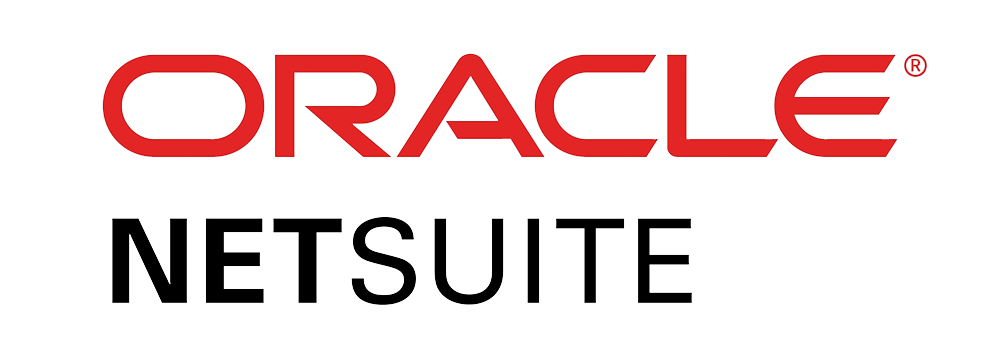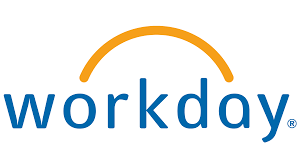Best ERP Software for Services Companies
ERP software enables professional services firms to increase utlization KPI's, drive profitability and customer satisfaction.
At ERP Research, we help professional services firms to decide which ERP system suits their business needs best.
Top 10 ERP Systems For Services
Learn everything you need to know about the best ERP solutions for professional services in our detailed solution comparison report.
We review some the best ERP software for services companies including Netsuite, SAP, Microsoft, Workday, Acumatica and more.
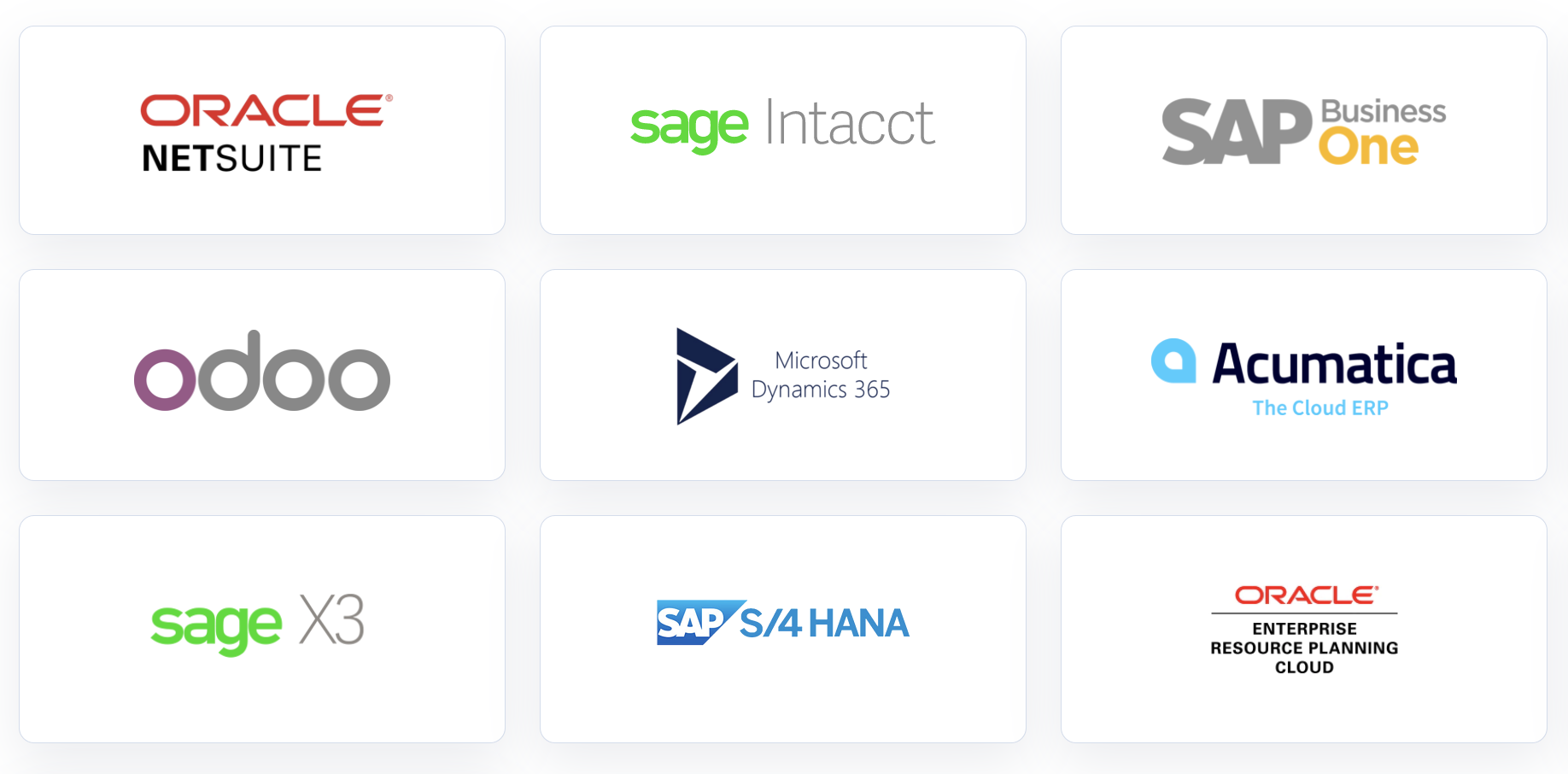
Best ERP Software for Small Services Companies
For small and medium professional services firms, managing billing, projects, human capital management and financials can be time consuming. Here are some of the popular ERP solutions used by SMB professional services firms:

Microsoft Dynamics 365 Business Central
Microsoft Dynamics 365 Business Central is a powerful ERP system for services companies, offering expandability into CRM, sales and service.

FinancialForce
FinancialForce is a Cloud based financial management and accounting system with additional features such as project management and billing which make it a great fit for services.

Priority ERP
Priority ERP is a great solution for small and medium sized services companies that want a flexible, low cost system that can easily scale.
ERP Software for Large Professional Services Firms
Large professional services firms require integration across their enterprise, with best of breed professional services automation to increase efficiencies and customer satisfaction. See our top recommendations for large professional services firms below:

Microsoft Dynamics 365
Microsoft Dynamics 365 has become extremely popular with professional services firms looking for a best of breed approach to customer engagement plus traditional ERP modules such as financials and billing capabilities.

IFS Applications
IFS Applications is a popular ERP solution offering integrated professional services automation capabilities across human capital management, customer engagement, financials and project management plus financials.
Cloud ERP Software for Professional Services Firms
Large professional services firms require integration across their enterprise, with best of breed professional services automation to increase efficiencies and customer satisfaction. See our top recommendations for large professional services firms below:

Acumatica
Acumatica Cloud ERP is used by many small business service companies in the professional services, financial services and project based industries and offers rich functionality for finance, projects and more in one SaaS Cloud ERP solution.

Oracle Netsuite
Netsuite is a popular choice for growing professional services firms for its integrated CRM, projects, financials and billing capabilities. Netsuite gives professional services firms small and large the competitive edge.

Sage Intacct
Sage Intacct has become incredibly popular with professional services firms from architects to marketing agencies, law firms and more. Intacct provides great capabilities for growing firms wanting Cloud ERP capabilities.

SAP Business ByDesign
SAP Business ByDesign has several thousands of professional services customers that use it's ERP capabilities to run standardized processes across borders for projects, financials, HCM and more.

Microsoft Dynamics 365 Business Central
Microsoft Dynamics 365 Business Central is a powerful ERP system for services companies, offering expandability into CRM, sales and service.
Speak to an Independent ERP Expert
ERP Research helps you to:
✅ Shortlist ERP software & implementation partners.
✅ Arrange custom ERP demonstrations and quotes.
✅ Access our huge library of ERP reports, templates and project documentation.
Users Per Month:
18,000+
ERP Projects:
4000+
Industries Covered:
22+
SAP Business One
SAP Business One is an integrated business management software designed for small and medium-sized enterprises including those in the service industry. It provides various functionalities that can be used by services companies to streamline their business operations, enhance productivity and efficiency, and improve customer satisfaction. Some of the key features of SAP Business One that can be used by services companies are:
-
Project management: SAP Business One allows service industry companies to manage multiple projects simultaneously, track project progress, and manage resources effectively. It also enables project managers to monitor project costs, assign tasks to team members, and manage project timelines.
-
Time and expense management: SAP Business One enables services companies to track employee time and expenses, manage project budgets, and create detailed reports to analyze project costs.
-
Customer relationship management (CRM): SAP Business One provides a comprehensive CRM system that allows services companies to manage customer interactions, track sales leads, and improve customer satisfaction. It also provides a centralized customer database, which enables companies to access customer information and history.
-
Financial management: SAP Business One provides robust financial management features, such as accounts payable, accounts receivable, general ledger, and financial reporting. These features allow services companies to manage their finances effectively and ensure compliance with accounting standards.
-
Inventory management: SAP Business One enables services companies to manage their inventory levels, track stock movements, and streamline procurement processes. This helps companies to optimize their inventory levels, reduce stock-outs, and improve order fulfillment times.
-
Analytics and reporting: SAP Business One provides powerful analytics and reporting capabilities, allowing services companies to track KPIs, generate reports, and gain insights into their business performance. It also enables companies to create customized dashboards, which provide real-time visibility into critical business data.
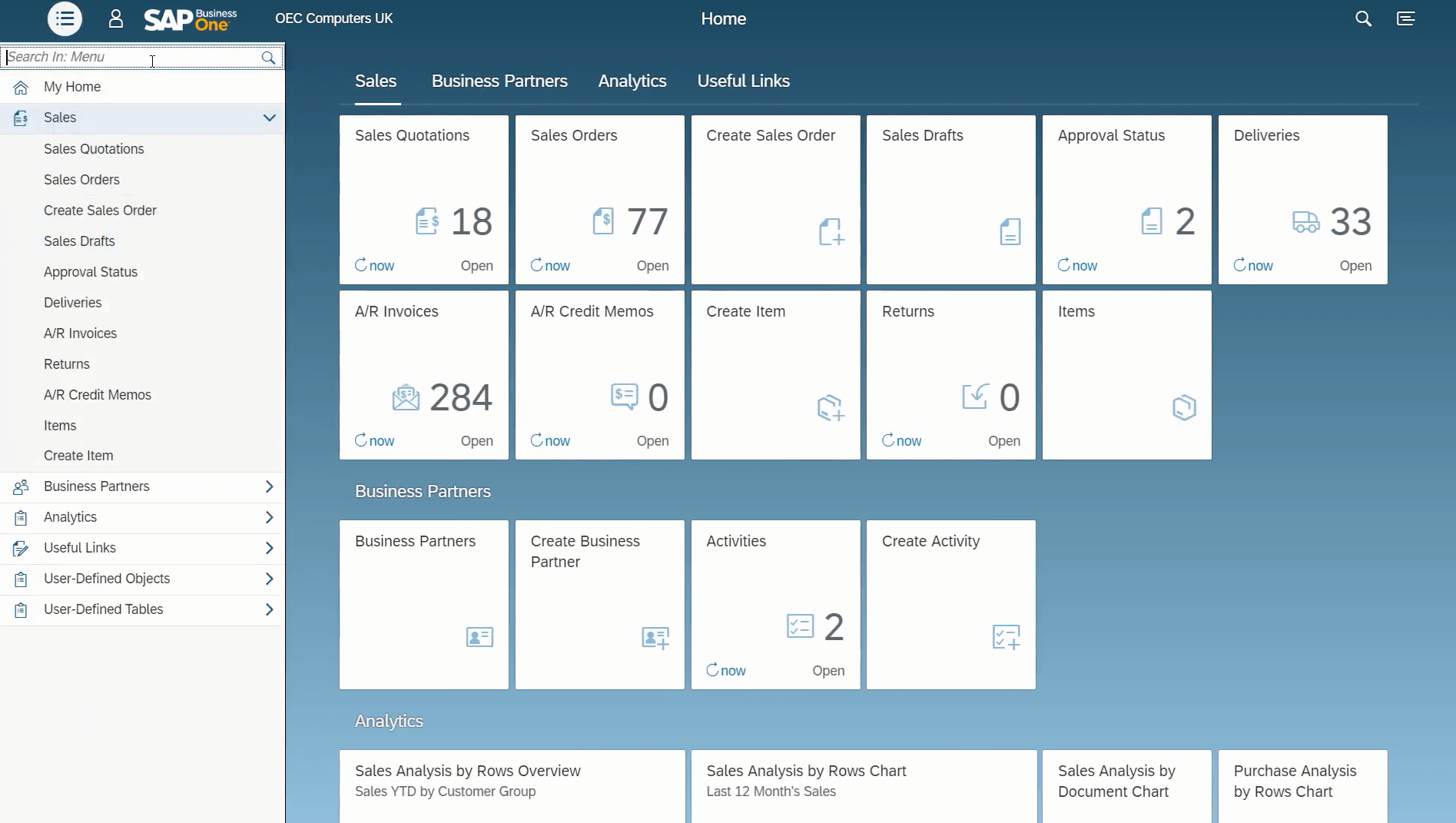
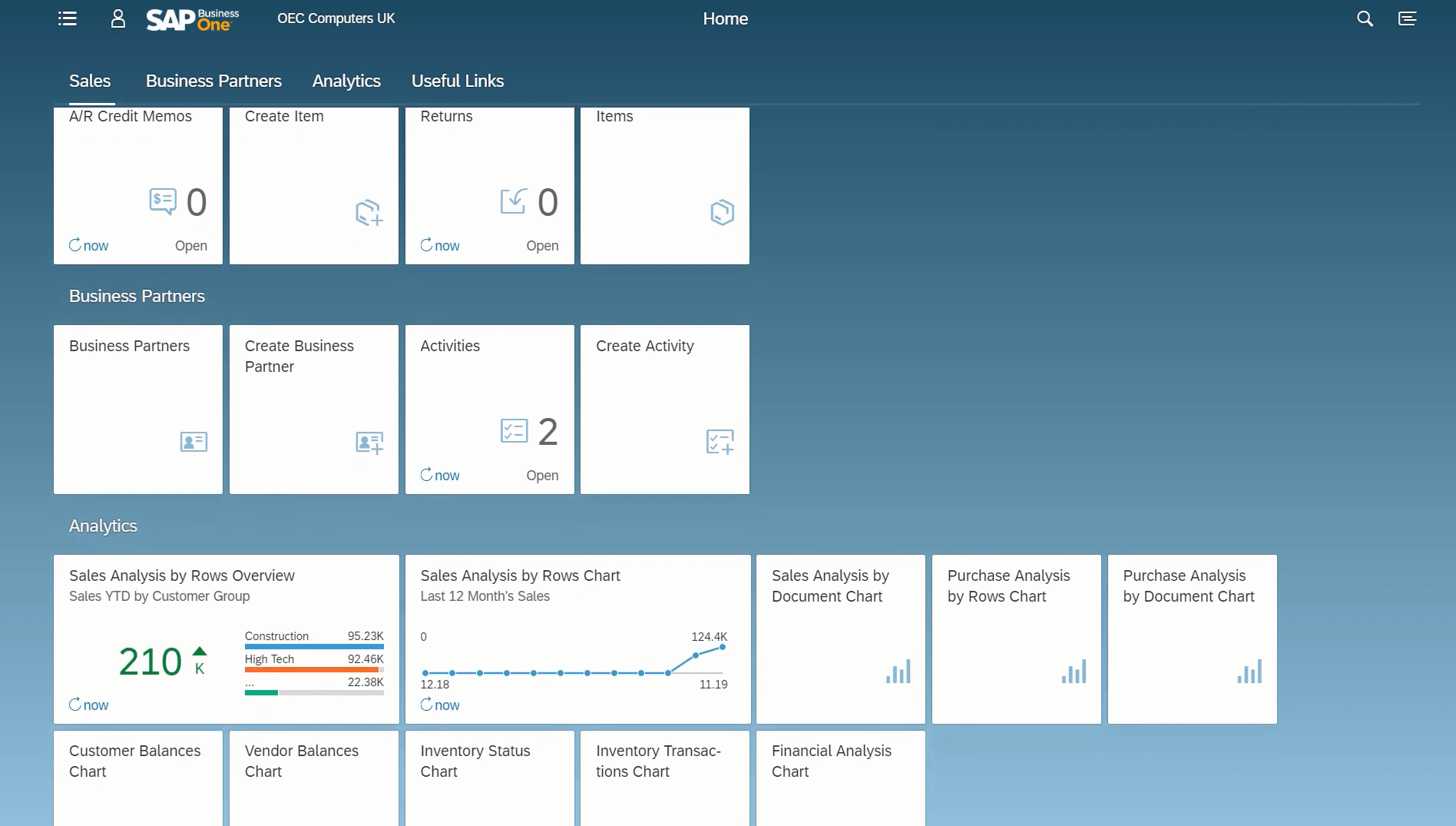
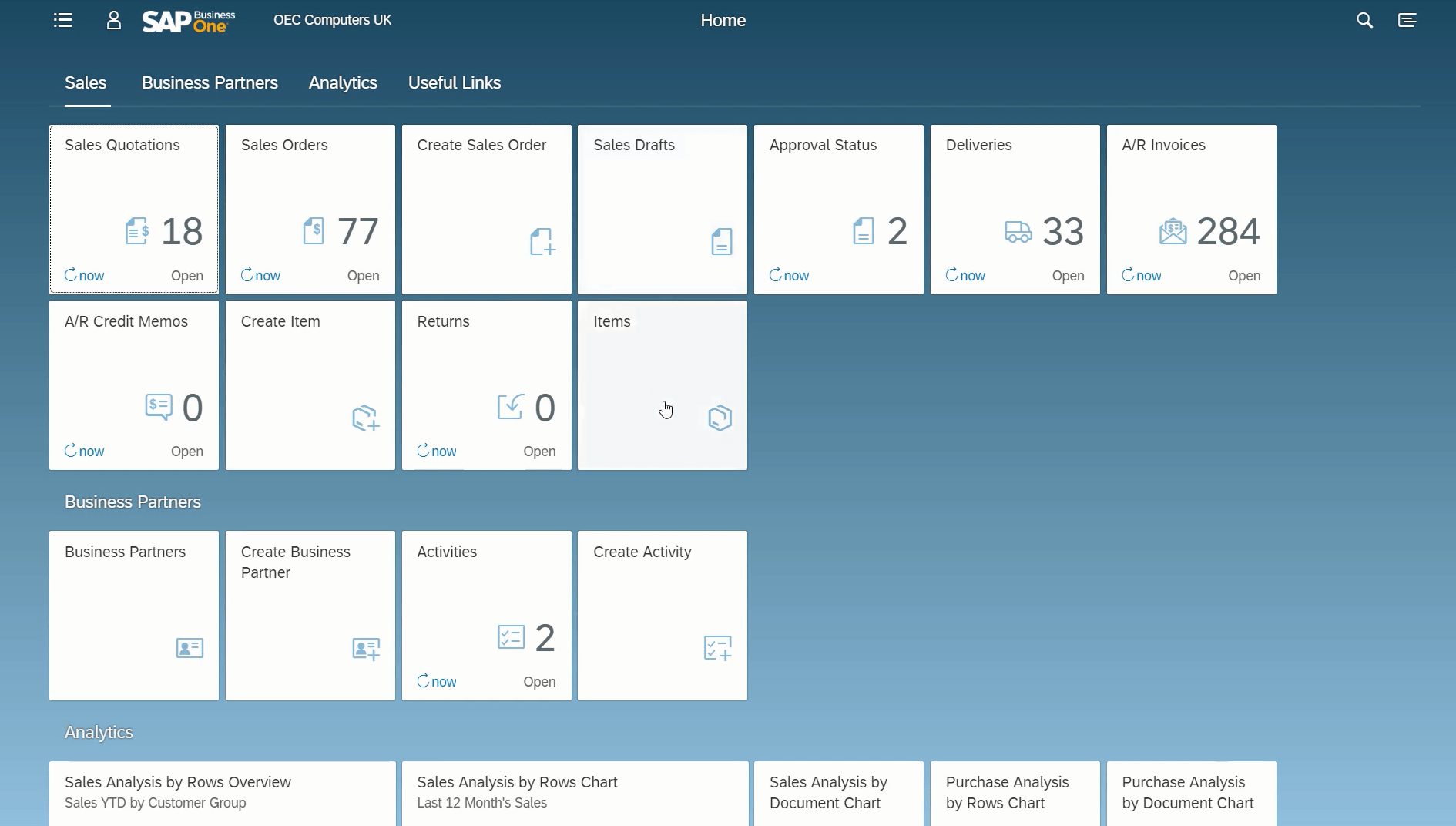
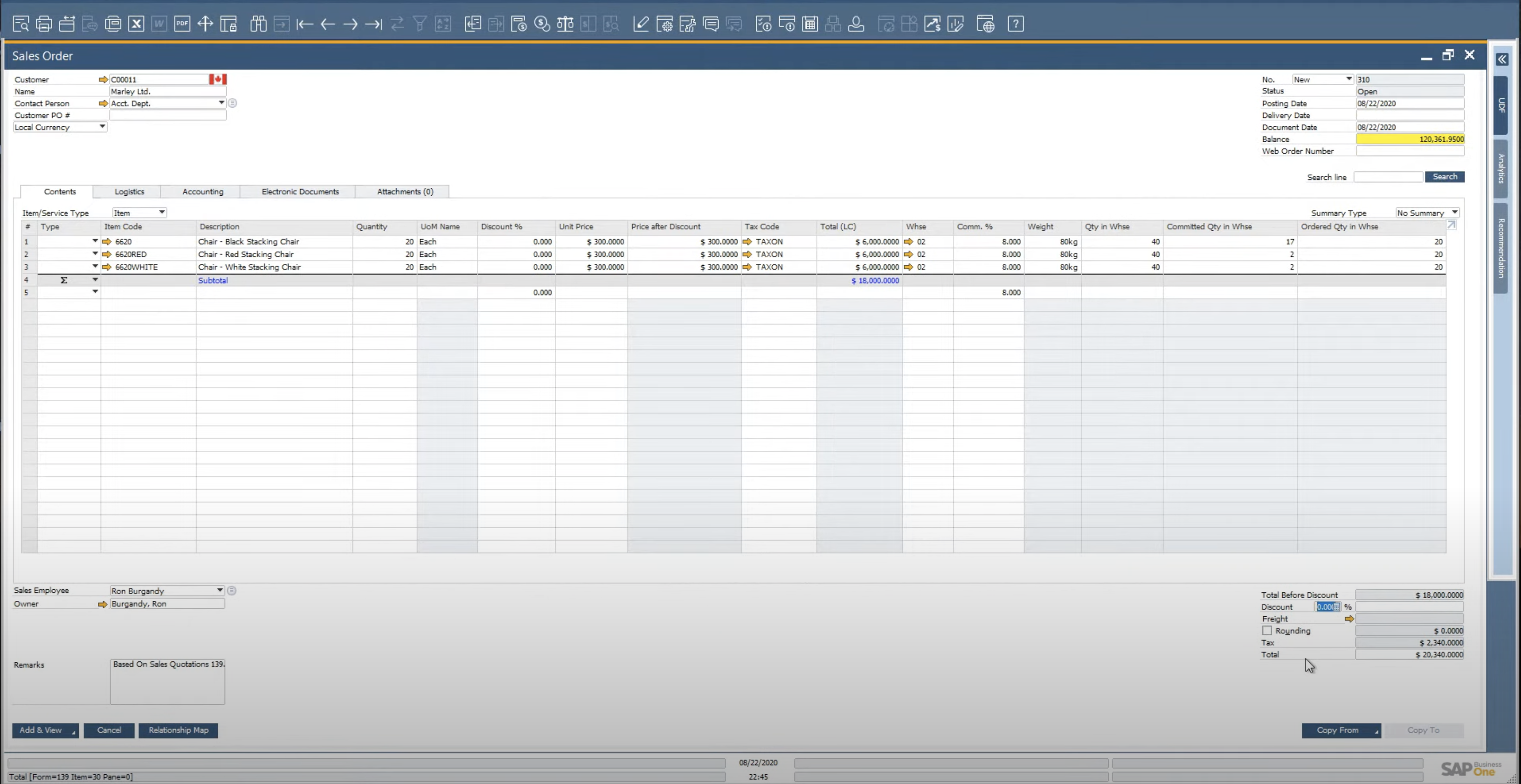
Oracle NetSuite
NetSuite is a cloud-based business management software solution that can be used by companies in the professional services industry to manage various aspects of their business operations. Here are some ways in which NetSuite can be used by professional services companies:
-
Project Management: NetSuite can be used to manage projects from start to finish, including project planning, resource allocation, time and expense tracking, and project billing. Project managers can easily create and manage project budgets, track project progress, and ensure that projects are delivered on time and within budget. This makes it a great ERP for the service industry.
-
Resource Management: Professional services companies often need to manage resources, such as employees, contractors, and equipment. NetSuite provides tools to manage resource utilization, scheduling, and availability, ensuring that resources are allocated effectively and efficiently.
-
Financial Management: NetSuite offers financial management features, including billing and invoicing, accounts payable and receivable, financial reporting, and budgeting. This allows professional services companies to manage their finances more effectively, monitor cash flow, and gain insights into their financial performance.
-
Customer Relationship Management (CRM): NetSuite provides a comprehensive CRM solution that allows professional services companies to manage their customer interactions and relationships more effectively. This includes managing customer accounts, tracking leads and opportunities, and managing customer communications.
-
Time and Expense Tracking: NetSuite provides tools for tracking time and expenses, allowing professional services companies to accurately bill their clients and track project profitability. This can help companies identify areas for cost savings and optimize their pricing strategies.
-
Reporting and Analytics: NetSuite provides reporting and analytics tools that allow professional services companies to gain insights into their business performance. Companies can create custom reports, dashboards, and KPIs to track performance across various areas of their business.
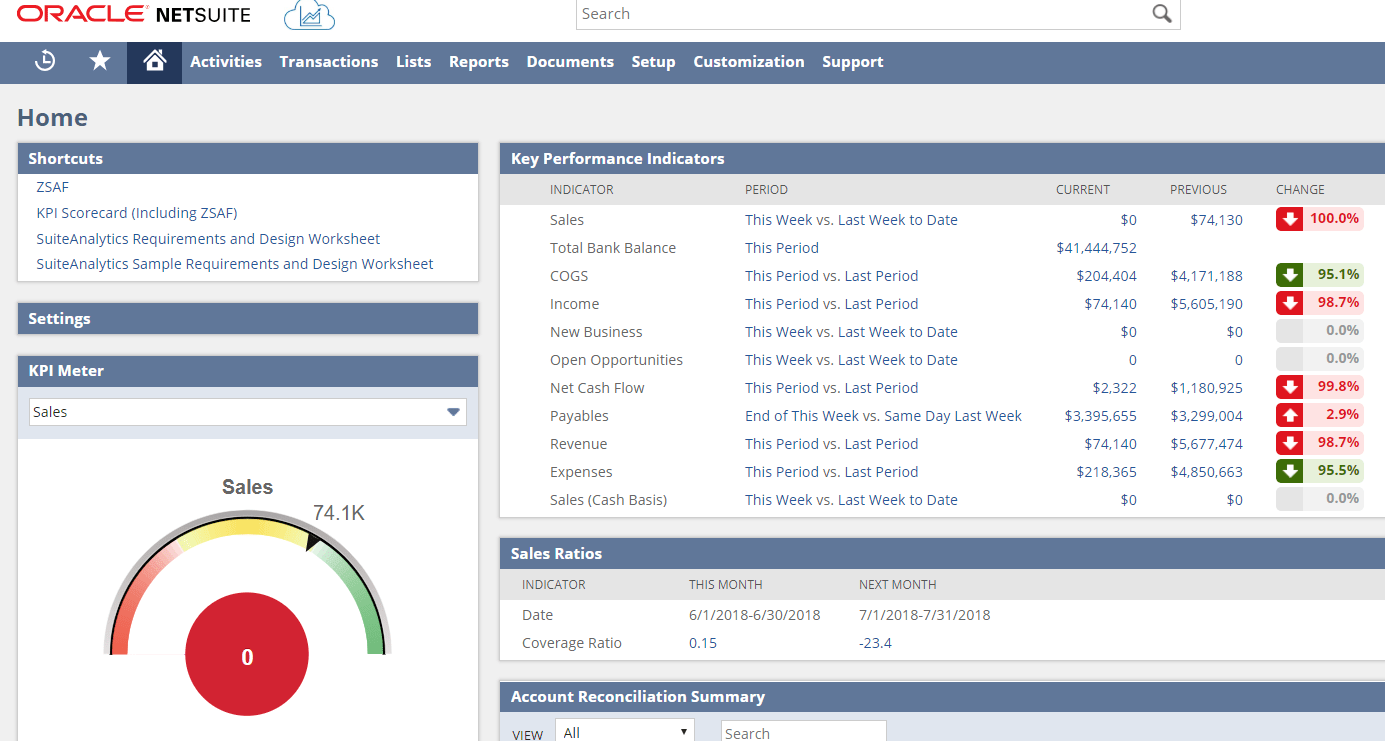
Sage Intacct
Sage Intacct is a cloud-based financial management solution designed for small to mid-sized businesses in the service industry. It offers a wide range of features to help companies manage their financial operations more efficiently. For services companies, Sage Intacct can be particularly useful in several ways:
-
Project Accounting: Services companies often work on multiple projects simultaneously. Sage Intacct's project accounting module allows companies to track project costs, revenues, and profitability in real-time. This helps companies to understand which projects are profitable and which are not, and make adjustments accordingly.
-
Time and Expense Tracking: Services companies typically bill their clients based on the time and expenses incurred on a project. Sage Intacct's time and expense tracking module allows employees to easily log their hours and expenses, which can be easily invoiced to the clients.
-
Revenue Recognition: Services companies often have complex revenue recognition requirements. Sage Intacct's revenue recognition module enables companies to automate revenue recognition based on project milestones or other criteria, ensuring compliance with accounting standards.
-
Billing and Invoicing: Sage Intacct's billing and invoicing module enables services companies to create customized invoices and automate the billing process. This saves time and ensures accurate billing.
-
Financial Reporting: Services companies need to be able to track their financial performance and make informed decisions. Sage Intacct provides comprehensive financial reporting capabilities, including real-time dashboards and custom reports, allowing services companies to gain insights into their financials and make data-driven decisions.
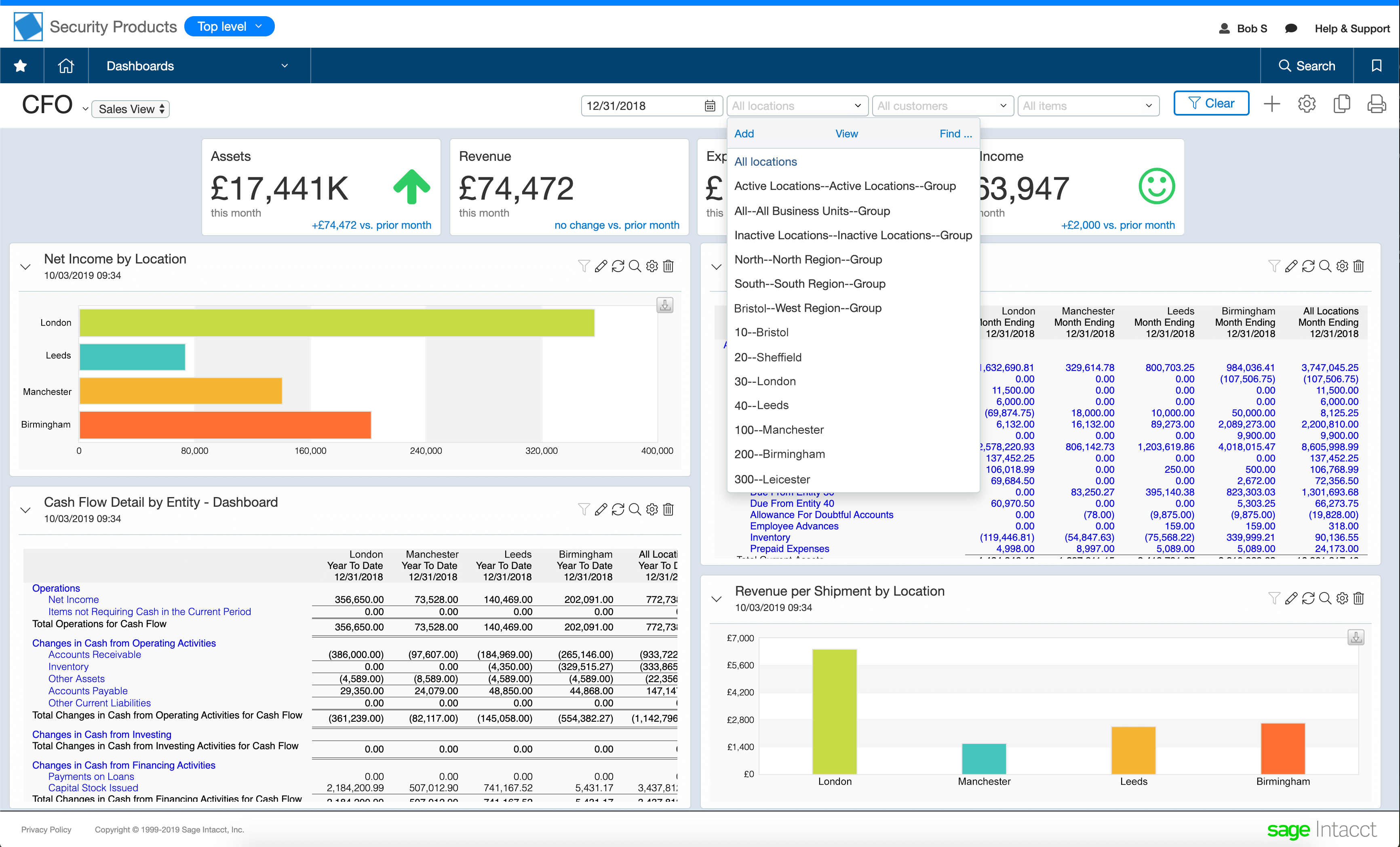
Acumatica
Acumatica is a cloud-based Enterprise Resource Planning (ERP) software that can be used by consulting companies to manage various aspects of their business, including financials, project management, inventory, and customer relationship management (CRM). Here are some ways consulting companies can use Acumatica:
-
Financial Management: Acumatica ERP for the service industry provides robust financial management tools that enable consulting companies to manage their financial operations, including accounts payable and receivable, general ledger, and cash management. It also provides tools for budgeting, forecasting, and financial reporting, giving consulting companies real-time insights into their financial performance.
-
Project Management: Consulting companies can use Acumatica to manage their projects from start to finish. The software provides tools for project planning, budgeting, scheduling, and resource allocation. It also allows consulting companies to track project progress, monitor project costs, and manage project billing.
-
Time and Expense Tracking: Consulting companies can use Acumatica to track their employees' time and expenses. The software provides tools for timesheet entry, expense tracking, and reimbursement processing. This allows consulting companies to accurately track their project costs and bill their clients accordingly.
-
Inventory Management: Consulting companies that sell physical products can use Acumatica to manage their inventory. The software provides tools for tracking inventory levels, managing stock replenishment, and tracking product sales. This allows consulting companies to optimize their inventory levels and avoid stockouts.
-
CRM: Acumatica provides robust customer relationship management (CRM) tools that enable consulting companies to manage their interactions with customers. The software provides tools for managing customer contacts, tracking customer interactions, and managing customer service requests. This allows consulting companies to provide exceptional customer service and build strong relationships with their clients.
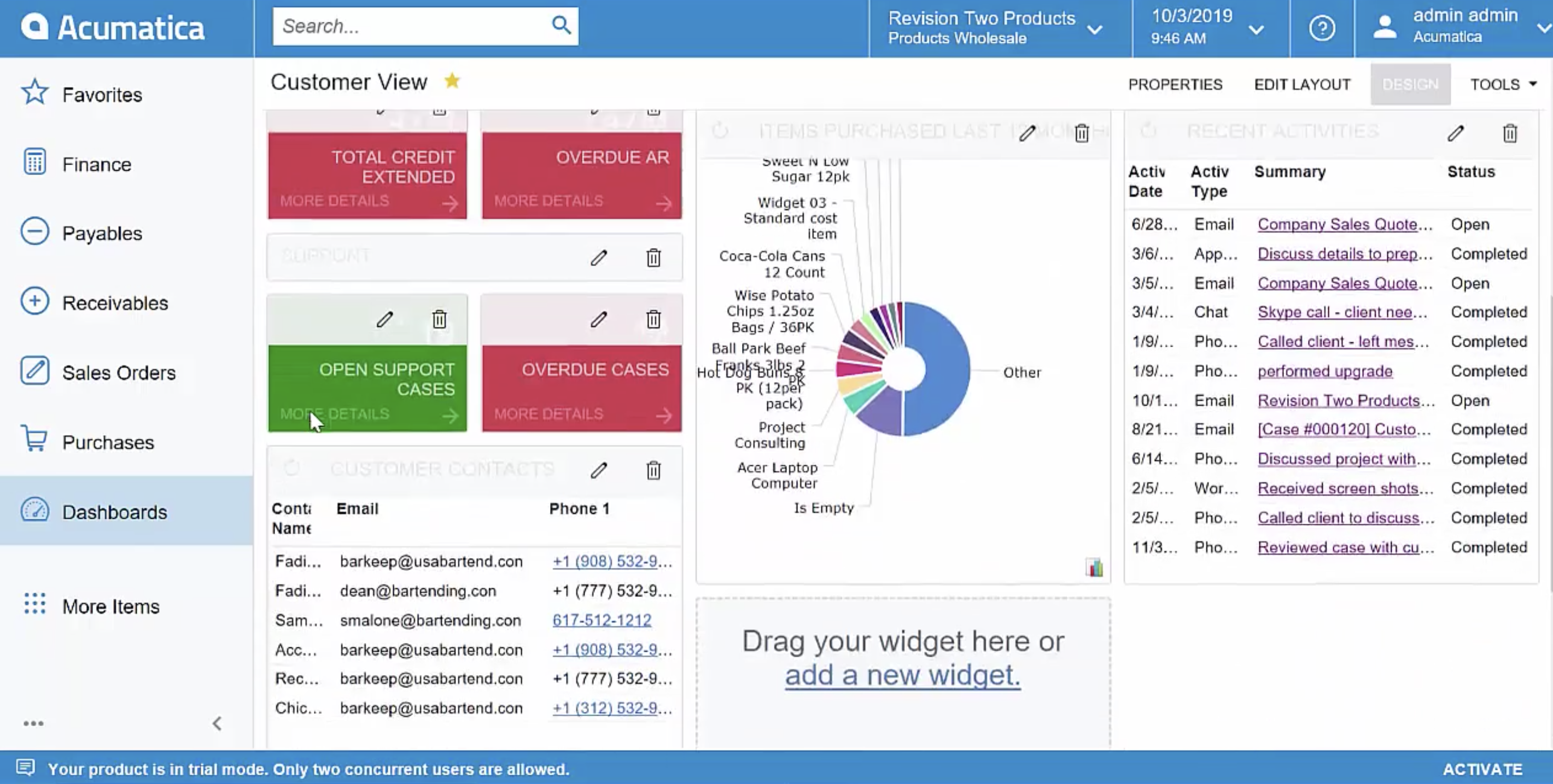
SAP S/4 HANA
SAP S/4HANA is an enterprise resource planning (ERP) system that can be used by professional services providers to streamline and optimize their business operations. Here are some ways in which professional services providers can use SAP S/4HANA:
-
Project Management: SAP S/4HANA offers project management capabilities that allow professional services providers to plan, track, and manage projects more efficiently. This includes features such as project planning, budgeting, resource allocation, and progress monitoring.
-
Resource Management: With SAP S/4HANA, professional services providers can manage their resources more effectively. The system allows for real-time tracking of resource availability, utilization, and allocation, which helps in optimizing resource usage.
-
Financial Management: SAP S/4HANA provides robust financial management capabilities, such as financial accounting, asset accounting, and cash management. These features help professional services providers to manage their finances more effectively, reduce manual work, and improve accuracy.
-
Time and Expense Management: Professional services providers can use SAP S/4HANA to track time and expenses more efficiently. This includes features such as time recording, billing, and expense reporting, which helps to improve accuracy, reduce errors, and speed up the invoicing process.
-
Analytics and Reporting: SAP S/4HANA provides advanced analytics and reporting capabilities, which enable professional services providers to gain insights into their business operations. This includes features such as dashboards, KPIs, and ad-hoc reporting, which help in making informed business decisions.
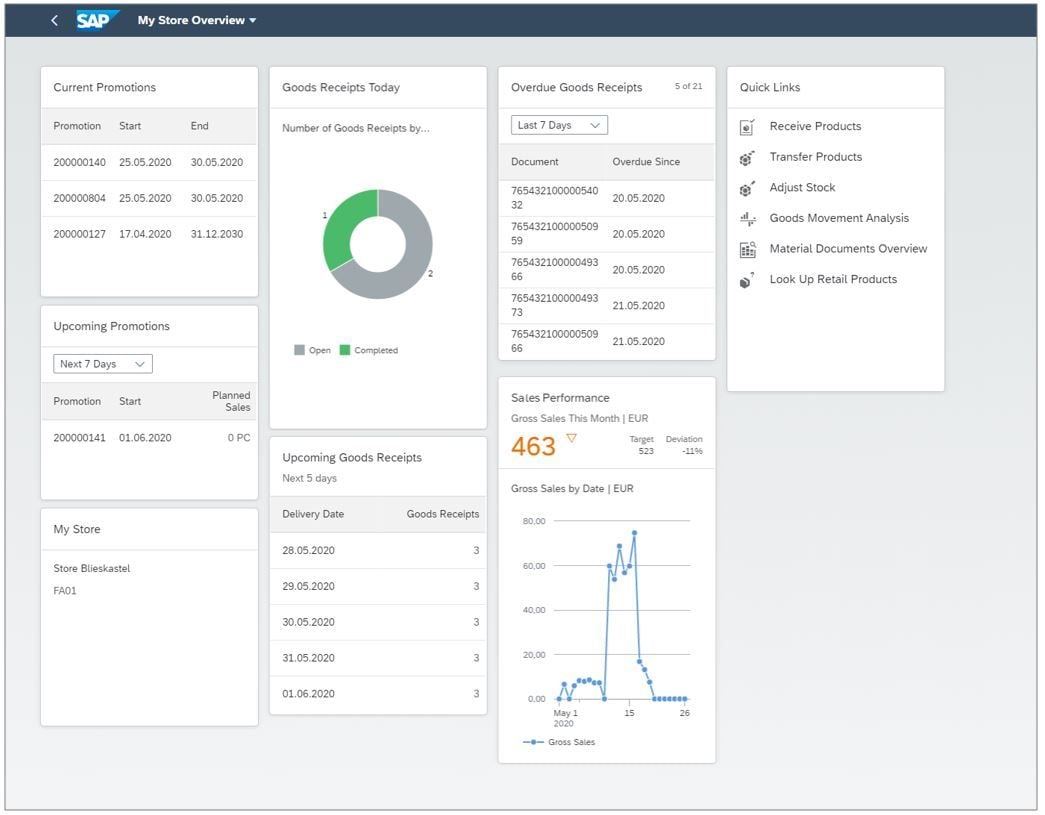
IFS
IFS ERP (Enterprise Resource Planning) is a comprehensive software solution that can be used by companies in various industries, including the service industry. Some of the key features of IFS ERP that can benefit service companies include:
-
Service Management: This module is designed to manage service operations efficiently, including service contracts, service orders, resource scheduling, and mobile workforce management.
-
Resource Planning: IFS ERP helps service companies to optimize resource utilization and improve service delivery by enabling effective scheduling, allocation, and tracking of resources.
-
Project Management: This feature helps service companies to manage projects effectively by providing tools for planning, budgeting, scheduling, and tracking project progress.
-
Financial Management: IFS ERP offers comprehensive financial management capabilities, including general ledger, accounts payable, accounts receivable, and cash management, enabling service companies to manage their financial operations effectively.
-
Inventory Management: IFS ERP provides real-time visibility into inventory levels and helps service companies to optimize inventory usage, reduce waste, and improve service delivery.
-
Customer Relationship Management (CRM): This feature allows service companies to manage customer interactions, track customer information, and analyze customer data, enabling them to improve customer satisfaction and loyalty.
-
Business Intelligence and Analytics: IFS ERP provides powerful analytics and reporting tools that help service companies to gain insights into their operations, identify trends, and make informed decisions.
-
Mobility: IFS ERP offers mobile applications that allow service technicians to access information and complete service tasks while on the move, improving efficiency and customer service.
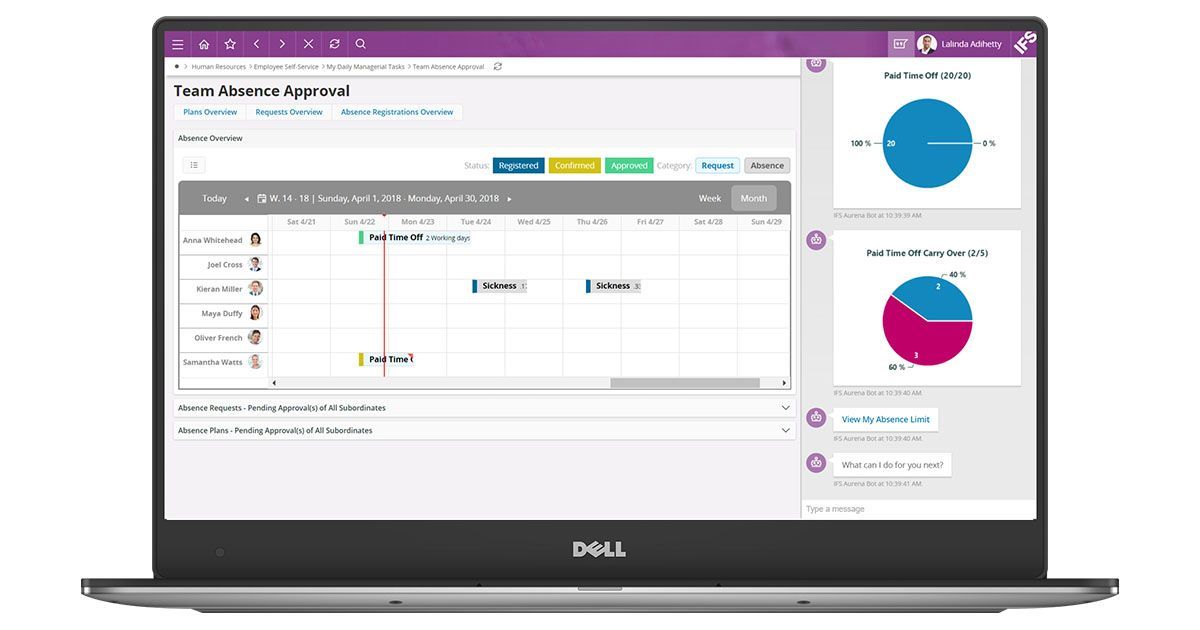
Workday
Workday is a cloud-based software platform that provides a range of human capital management and financial management services. In the professional services industry, Workday is commonly used as a tool to manage human resources, payroll, time tracking, expenses, and project management.
Here are some specific ways that Workday is used in the professional services industry:
-
Human resources management: Workday can be used to manage the entire employee lifecycle, from recruitment and onboarding to performance management and offboarding. Professional services firms use Workday to manage employee data, maintain compliance with labor laws, and streamline HR processes.
-
Payroll management: Workday can be used to manage payroll for employees, including calculating pay, processing taxes, and managing benefits. Professional services firms use Workday to ensure that employees are paid accurately and on time.
-
Time tracking: Workday can be used to track the time that employees spend on projects and activities. This information can be used to bill clients, allocate resources, and manage project budgets.
-
Expense management: Workday can be used to manage employee expenses, such as travel and entertainment expenses. Professional services firms use Workday to ensure that expenses are accurately recorded and reimbursed in a timely manner.
-
Project management: Workday can be used to manage projects, including tracking milestones, deadlines, and budgets. Professional services firms use Workday to manage multiple projects at once, assign tasks to team members, and monitor progress in real time.
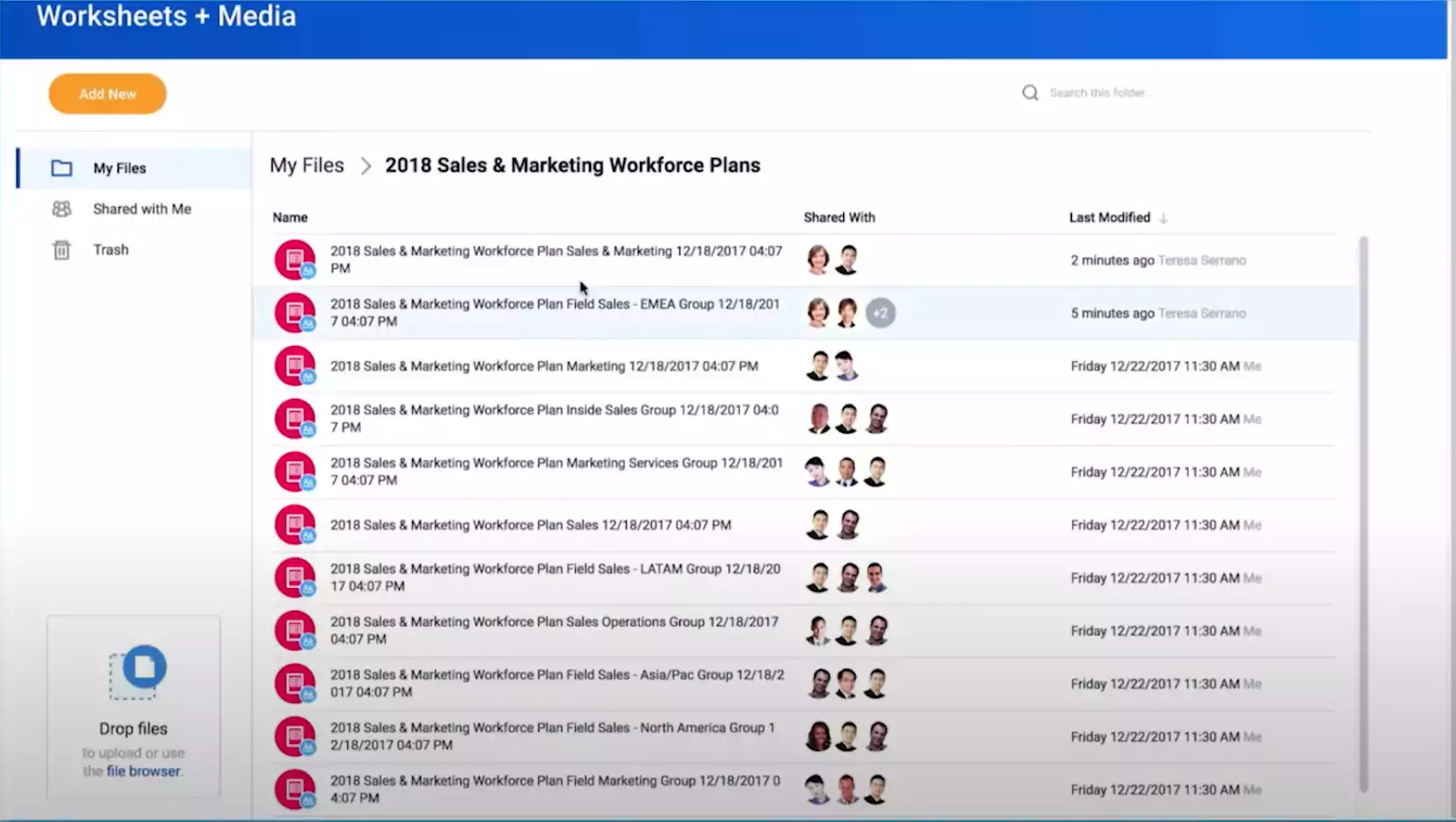
What's the difference between PSA & ERP?
In the professional services world, many organizations are adopting professional services automation tools to increase productivity. But what is professional services automation and how does it differ from enterprise resource planning?
ERP Requirements Gathering (RFI, RFP) Template Excel
Start your ERP evaluation process with our RFI & RFP Excel template for the professional services industry.
ERP Project Budget Calculator Template
Calculate the costs of your ERP project with our prebuilt budget calculator.
How does ERP help Professional Services?
ERP gives professional services a central repository for critical business data, enabling them to create workflows and processes to standardise business operations. See which modules many modern ERP systems enable professional services firms to work smarter, not harder:
Accounting and Financials
Unify financials across your services firm to increase the financial control and identify issues proactively using an ERP system.
Purchasing
Ensure spend and budget compliance whilst maximising industries of scale and reducing lead times in your services ERP.
Asset Management
Manage business assets with ERP for services to easily capitalise and monitor your assets.
Reporting and dashboards
Develop a single view of your servicees business in order to increase transparency, decision-making and ultimately drive results.
Expenses management
Automate expenses requisitions and approvals with integrated expenses management to help your consultants, engineers and people be more productive.
Customer service
Review your customer service history and provide better cross-selling, up-selling and post-sale customer support to help deliver products more accurately.
Inventory management
Deliver comprehensive inventory management that provides insight into your entire flow, from purchasing to transportation and delivery.
Sales management
Track & plan sales pipeline, score leads, prospects and forecast opportunities in real-time across territories, accounts and teams.
Global management
Compile global financial, manufacturing, project and process information into a central location.
Engineering management
Combine your sales, customer service, and engineering processes into a single solution designed to meet the needs of a broad range of engineering tasks.
Customisation
Flexible ERP software that's built on an open and extensible foundation, allowing you to choose the features that suit your business needs.
Mobility
Access your ERP data at any time so you're more available to customers and take advantage of unexpected opportunities as they surface.
Development tools
ERP software for the engineering industry features all of the tailored solutions an organization needs to design, build and document their projects faster.
Updates and maintenance
Backed by the consistency of market-leading vendors, ERP software regularly updates to ensure an optimal user experience.
Versatile deployments
Connects customers, partners, and employees through real-time digital relationships to improve the way you do business.
Unlimited support
ERP implementation is a longterm strategic partnership and vendors provide free unlimited technical support for clients.
Start Your ERP Journey With ERP Research
We help pharmaceutical firms to prepare for ERP change by guiding them through each stage of the process:
-
Build An ERP Business Case 2-3 weeksA solid business case is a foundation you need if you are going to persuade your organization to consider enterprise resource planning (ERP) implementation. Download Business Case Template
-
Compare ERP Vendors 2-3 weeksIt’s critical to understand which ERP vendor is right for your business. Before you decide on the vendor for your company, take a look at our solution pages to find out which vendor would be best. Compare ERP Vendors
-
Get Pricing Estimates 1-2 weeksOur exclusive process removes all the salesmen from the equation and gets you real pricing estimates from every qualified vendor. Contact Us For Pricing
-
Organize A Solution Demo 1-2 weeksDuring a demo, you will learn about how large corporations are making use of ERP software and how they are improving their business practices. Book A Demo
-
Build ERP Requirements 3-4 weeksIf you're looking to buy an Enterprise Resource Planning (ERP) system or upgrade your internal systems you will need a clear definition of all the functions, features and capabilities that you expect. You can approach this challenge by building what's called an ERP requirements document. Download ERP Requirements Template
-
Shortlist 4-8 Vendors 1 weekOne of the most important phases in the ERP project lifecycle is selecting the right software vendor. Ideally, you should shortlist 4-8 vendors - based on their credentials and your requirements. Contact Us To Shortlist Vendors
Professional Services ERP Guide
What is Professional Services ERP?
ERP for professional services companies allows firms including legal services, lawyers, architecture and design, consulting and other services business to centralise data in their organizations. Typically, professional services ERP software typically includes modules for financial management and accounting, billing, human resources, project management, giving your employees across these departments the ability to exchange information and complete end to end business processes.
What are the benefits of Professional Services ERP?
Services ERP software enables companies to increase efficiencies by positively impacting critical KPIs and processes for legal firms, architecture companies and other services companies.
- Increased Efficiency
- Improved Cashflow
- Customer Satisfaction
- Resource Utilization
A key metric for professional services companies is their ability to monetize the expertise and time of their employees. Professional services ERP software typically enables you to measure the rate of resource utilization across your firm, to understand how to positively impact your profit margins and assess your ability to cover new customer demand.
How much does Professional Services ERP cost?
ERP software for services companies can incur multiple types of cost which are primarily broken into ERP license costs, ERP implementation costs and ERP support costs. The cost of your ERP project will depend on several factors such as the size and complexity of your business, the professional services ERP software you choose and your ability to accept the standard processes and functionality the software provides.
What is the best ERP for services companies?
Services companies have a number of choices when it comes to choosing ERP software. Top ERP systems for services companies in 2022 include Netsuite, Workday, SAP Business ByDesign, Sage Intacct.
What is the best ERP for consulting companies?
Consulting companies typically require project management, financial management, travel and expenses and human resource capabilities in their ERP software.
ERP software for consulting companies can cover all of these needs and popular choices include SAP Business ByDesign, Deltek, Workday, Netsuite and Microsoft Dynamics.
Which Professional Services firms use ERP?
Companies in the services sector can include professional services, legal services, financial services and others. All of these companies are eligible to use ERP software.
Find & Compare ERP Software for Professional Services
Use our free tool to find and compare the market leading ERP software and solutions for manufacturing. See how ERP system solutions including NetSuite, Epicor, Infor & SAP Business One stack up against the competition.

.png?width=271&name=sap-s-4hana-logo%20(2).png)

